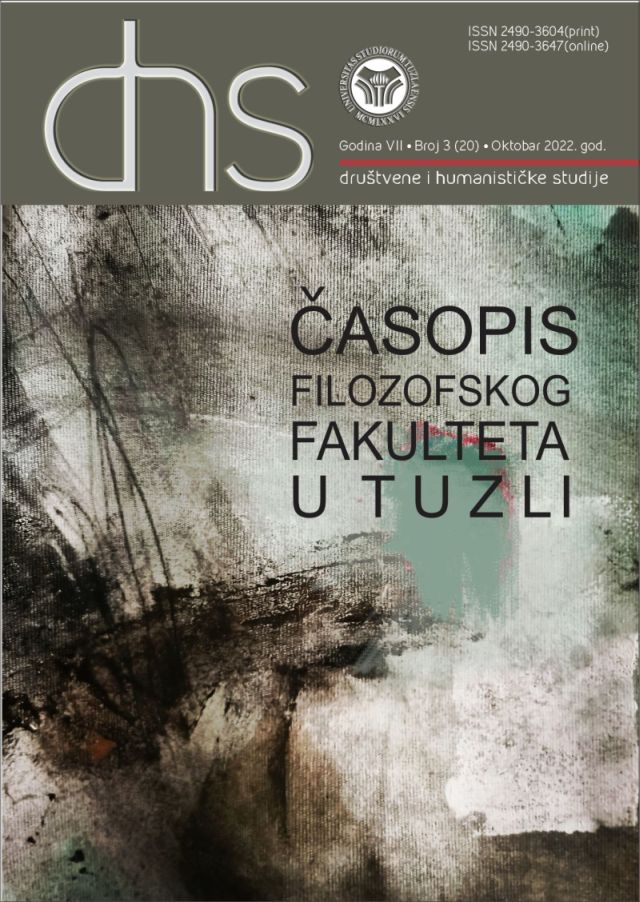Determinante percipirane povrede psihološkog ugovora akademskog osoblja
Determinants of the Psychological Contract Breach of Academic Staff
Author(s): Mirna MarkovićSubject(s): Education, Psychology, Communication studies
Published by: Filozofski fakultet Univerziteta u Tuzli
Keywords: psychological contract; academic staff; work performance; organizational socialization; communication;
Summary/Abstract: The traditional model of a university is gradually being metamorphosed into a corporate model that brings forth certain problems, alongside numerous solutions. In such circumstances, establishing and maintaining a culture of trust is the foundation of constructing a positive psychological contract between the organization and its employees. In such circumstances, establishing and maintaining the culture of trust in the academy’s commitment to the traditionally defined mission of building and disseminating knowledge aimed at improving, training, and educating the most important potential of the society – people are the foundation of constructing a positive psychological contract between teachers and higher education institutions. The psychological contract represents mutual expectations that the parties in this relationship do not have to be fully aware of, but which, nevertheless, guide their mutual behavior. It is an implicit agreement between the academic staff and the higher education institution specifying what each party in this relationship expects to offer but also receives in return. Since research on psychological contracts in the academic work environment is very rare, and the concept itself is relatively new and unexplored in the Bosnian context in general, this paper first sought to determine which factors may be related to the violation of psychological contracts in the academic context. The results suggest that a lower organizational performance of the higher education organization, lower academic staff member performance, as well as a lower level of formalization of the process of organizational socialization of newly-hired academic staff, lead to a higher perceived psychological contract breach. Findings also suggest that the implicit communication of the mutual expectations between the faculty/academy and the academic staff leads to a greater perceived psychological contract breach. The paper offers certain recommendations to higher education institutions for the establishment and preservation of a positive psychological contract in the academic context and the prevention of avoidable psychological contract breaches.
Journal: DHS-Društvene i humanističke studije: časopis Filozofskog fakulteta u Tuzli
- Issue Year: XX/2022
- Issue No: 20
- Page Range: 371-402
- Page Count: 32
- Language: Bosnian

